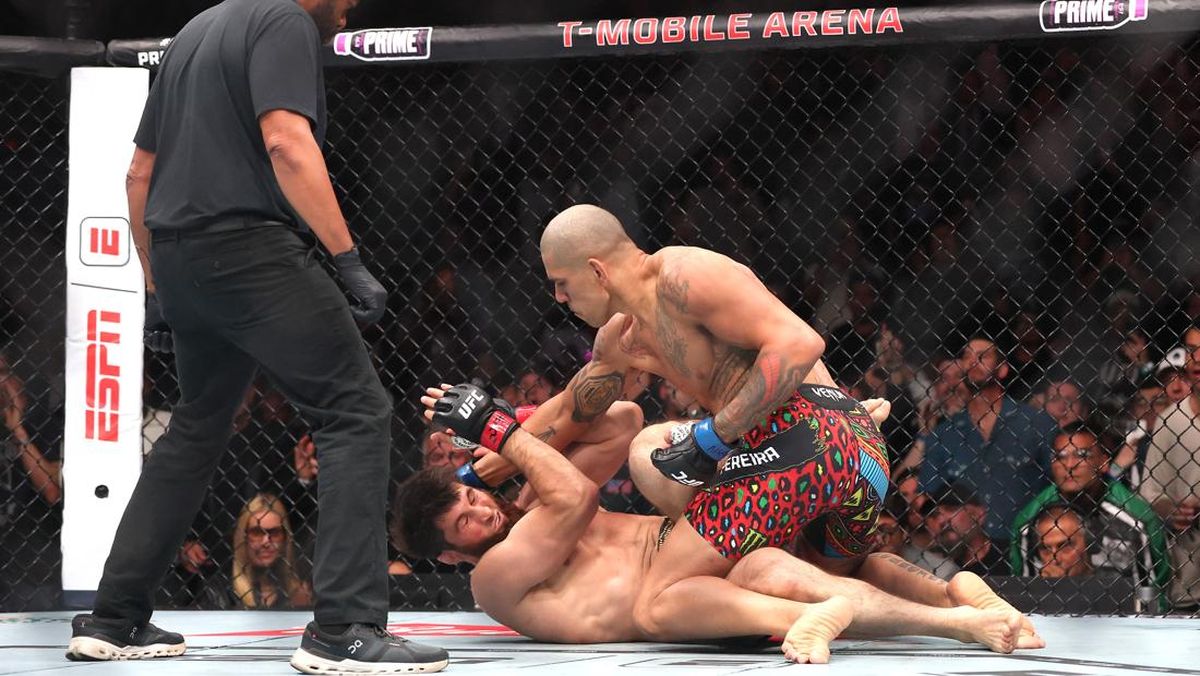The former United States Federal Bureau of Investigation (FBI) Director James Comey has been charged with lying to Congress.
He’s the first former senior government official to face charges tied to one of President Donald Trump’s biggest complaints: The investigation into Russian interference in the 2016 election.
The Justice Department says Comey could face up to five years in prison if he’s found guilty.
Here is what we know:
Who is James Comey?
James Comey was director of the FBI from 2013 to 2017, serving under President Barack Obama.
In 2017, after he became president, Donald Trump fired him while he was leading an investigation into whether Trump or his campaign had worked with Russia to influence the outcome of the 2016 election, which Trump, the Republican candidate, won against Democrat Hillary Clinton.
After Comey was dismissed, Special Counsel Robert Mueller took over the Russia investigation.
The investigation lasted nearly two years and found that Russia had made major efforts to sway the 2016 election. Ultimately, it did not prove there was any criminal conspiracy involving Trump or his team, but the case hung over Trump for years, and he condemned it as a “witch-hunt”.
 Donald Trump (top) speaks at a campaign event in Washington, DC, as Hillary Clinton listens during a town hall debate in Washington, DC, on October 26, 2016 [File: Carlo Allegri/Shannon Stapleton/Reuters]
Donald Trump (top) speaks at a campaign event in Washington, DC, as Hillary Clinton listens during a town hall debate in Washington, DC, on October 26, 2016 [File: Carlo Allegri/Shannon Stapleton/Reuters]What are the charges against Comey?
The case against Comey is not about the details of the Russia investigation. It focuses only on whether he lied to senators during his 2020 testimony about the investigation to the Senate Judiciary Committee in 2020.
At a September 30 hearing, Republican Senator Ted Cruz asked whether he had ever authorised anyone at the FBI to leak information to the press about investigations into Hillary Clinton’s emails and possible links between the Trump campaign and Russia.
Comey said he had never allowed anyone at the bureau to act as an anonymous source in news reports. That statement conflicted, however, with testimony from former FBI Deputy Director Andrew McCabe, who said Comey had, in fact, given such approval.
- The indictment’s first count – making false statements – claims Comey knowingly lied under oath during that hearing.
- The second count – obstruction of a congressional proceeding – accuses him of trying to interfere with the committee’s investigation by giving false and misleading testimony.
Overall, the Trump administration aims to cast the Russia investigation as part of an effort by the former President Barack Obama administration to leverage Moscow’s alleged interference in the election and to undermine the legitimacy of Trump’s victory.
What was Comey testifying about, exactly, in 2020?
The Republican-led Senate Judiciary Committee was reviewing mistakes the FBI made at the start of the Russia investigation.
Senators asked Comey about the FBI’s use of a dossier that made unverified claims about Trump’s ties to Moscow. The dossier, which has since been largely discredited, was used to obtain a warrant to secretly watch a former Trump campaign adviser.
Comey agreed that the errors in the warrant were serious. But he defended the overall investigation as having been “in the main, conducted in the right way”.
The questions about whether he had authorised anyone at the FBI to speak anonymously to the press about the Russia investigation came up in relation to this.
 James Comey, Former Director of the Federal Bureau of Investigation, testifies remotely before the Senate Judiciary Committee during an oversight hearing to examine the Crossfire Hurricane Investigation in Washington, DC, September 30, 2020 [Ken Cedeno/Reuters]
James Comey, Former Director of the Federal Bureau of Investigation, testifies remotely before the Senate Judiciary Committee during an oversight hearing to examine the Crossfire Hurricane Investigation in Washington, DC, September 30, 2020 [Ken Cedeno/Reuters]What is an indictment?
In most federal cases, an indictment takes place after a grand jury has determined that there is enough evidence that a crime has been committed.
According to the US Department of Justice, an indictment is issued as part of a formal written notice that a person is suspected of having committed a crime and that they will have to stand trial.
The indictment itself informs the person of the charges against them.
What is a grand jury?
A grand jury is a group of citizens convened by prosecutors to decide whether there is enough evidence to bring criminal charges. In legal terms, its role is to determine whether there is probable cause to believe a crime was committed.
Grand juries do not decide guilt or innocence.
What happens after the indictment is issued?
If a grand jury approves an indictment, the case moves forward in the court process. The defendant can either be arrested or be brought to court through a summons.
The defendant first appears at an arraignment, a court hearing where the charges are formally read and a plea is entered. The case then goes through pretrial steps, such as exchanging evidence and filing motions, and may be resolved with a plea deal (an agreement between the prosecutor and the defendant).
If no agreement is reached, the case proceeds to trial, where a jury decides guilt or innocence. If the defendant is found guilty, the judge imposes a sentence, which could include prison, fines or probation.
When will Comey’s arraignment happen?
Comey’s arraignment is set for October 9 at 10am local time (14:00 GMT) in Virginia.
After the indictment, his attorney, Patrick J Fitzgerald, released a statement saying: “Jim Comey denies the charges filed today in their entirety. We look forward to vindicating him in the courtroom.”
What was Trump’s reaction to the indictment?
Trump celebrated the move on Truth Social, writing: “JUSTICE IN AMERICA! One of the worst human beings this Country has ever been exposed to is James Comey, the former Corrupt Head of the FBI.
“Today he was indicted by a Grand Jury on two felony counts for various illegal and unlawful acts,” the president added.
.@POTUS: “JUSTICE IN AMERICA!” pic.twitter.com/polaL0r6ky
— Rapid Response 47 (@RapidResponse47) September 25, 2025
Attorney General Pam Bondi said “no one is above the law” and described the indictment as proof of the Justice Department’s “commitment to holding those who abuse positions of power accountable”.
How has Comey responded?
Comey released a video on Instagram in which he said: “My family and I have known for years that there are costs to standing up to Donald Trump. But we couldn’t imagine ourselves living any other way. We will not live on our knees and you shouldn’t either.
“I have great confidence in the federal judicial system and I’m innocent. So let’s have a trial and keep the faith,” he added.
What do critics of Comey’s indictment say?
The case against James Comey has raised concerns that the Justice Department, led by Bondi, is being used by Trump to target his political enemies.
Critics say the White House is interfering in ways that blur the line between law and politics.
Trump publicly pressured Bondi to bring charges against Comey and later complained that investigations had not produced prosecutions. He also announced plans to nominate Lindsey Halligan, a loyal aide with no experience as a federal prosecutor, to the top prosecutor post in Virginia.
The Eastern District of Virginia, which filed the case against Comey, was already in turmoil after its chief prosecutor resigned under pressure to pursue another Trump rival, New York Attorney General Letitia James. Halligan moved the Comey case to a grand jury, despite warnings not to from experienced prosecutors.
“This kind of interference is a dangerous abuse of power,” said Democratic Senator Mark Warner of Virginia.
“By ousting a respected, independent prosecutor and replacing him with a partisan loyalist, Trump is undermining one of the most important US. Attorney’s offices in the country and eroding the rule of law itself.”
Legal experts warn the move sets a dangerous precedent.
“Trump has explicitly stated that he is seeking to use his power as president, to seek revenge over those he believes are either his political opponents or those he personally dislikes,” Sahar Aziz, a Distinguished Professor of Law at Rutgers University, told Al Jazeera.
“This is unprecedented because Trump is using the criminal justice system to threaten the liberty of a former senior official,” she added.
“He has now set the precedent that the same thing could happen to him and his own appointees. This is an authoritarian slide.”

 2 months ago
26
2 months ago
26














































